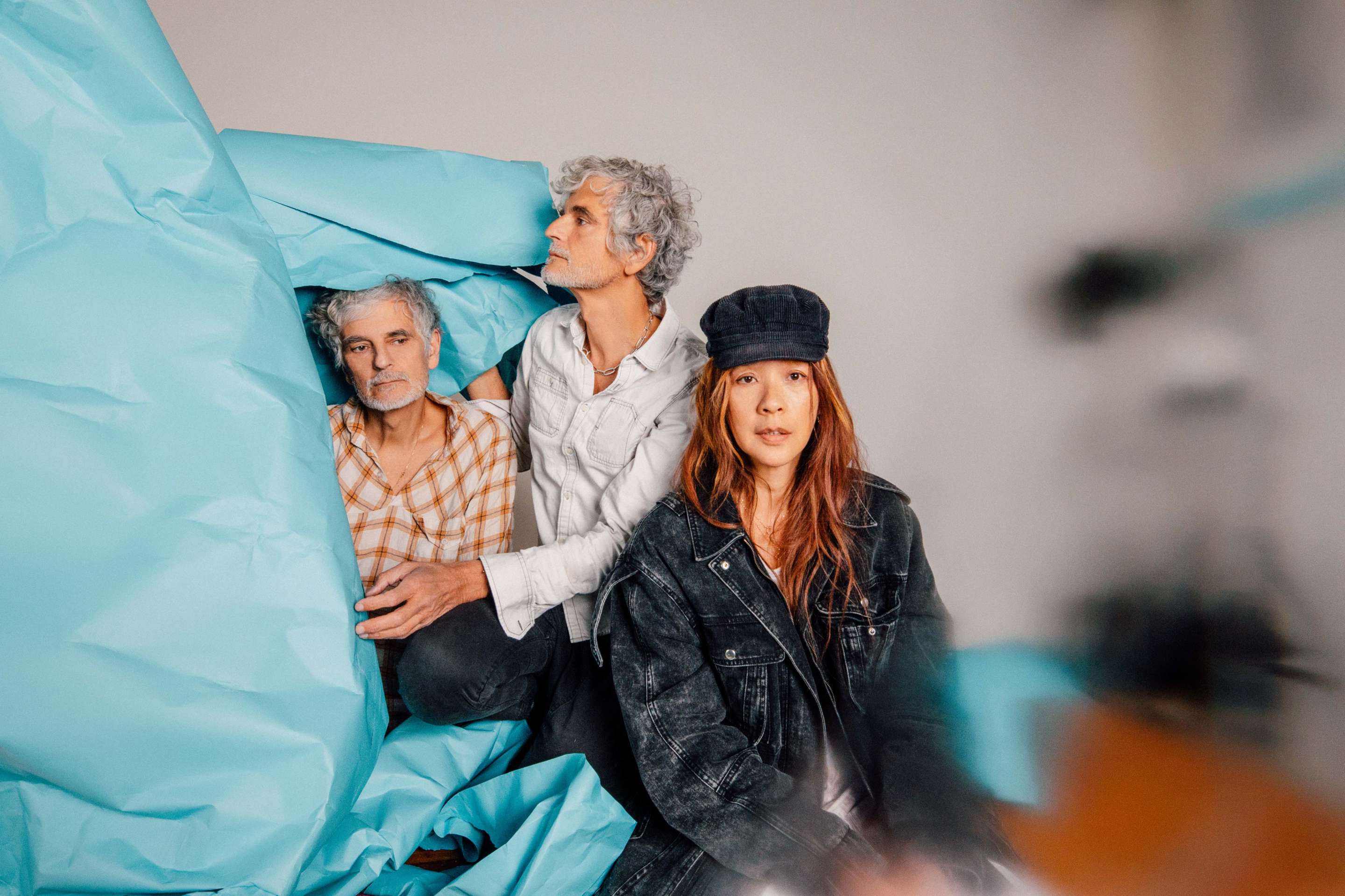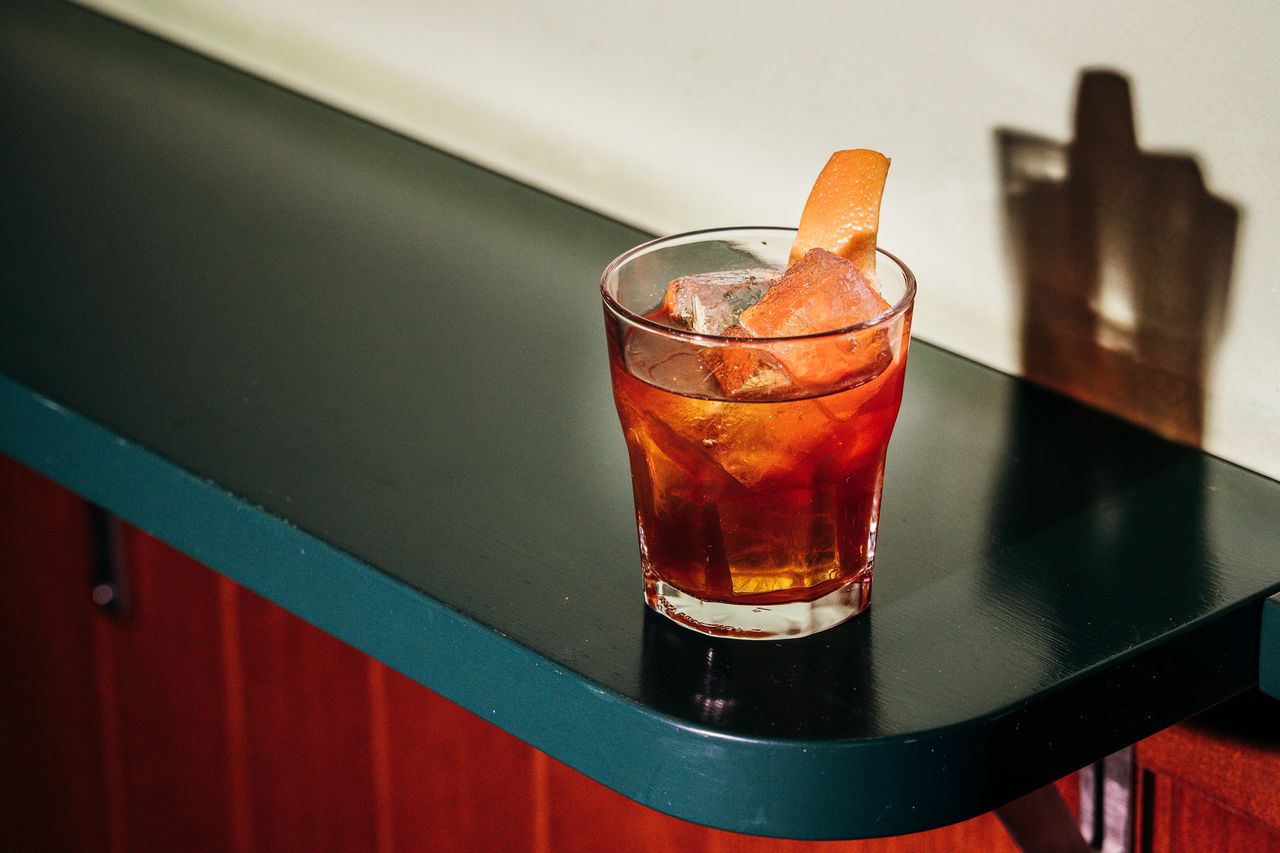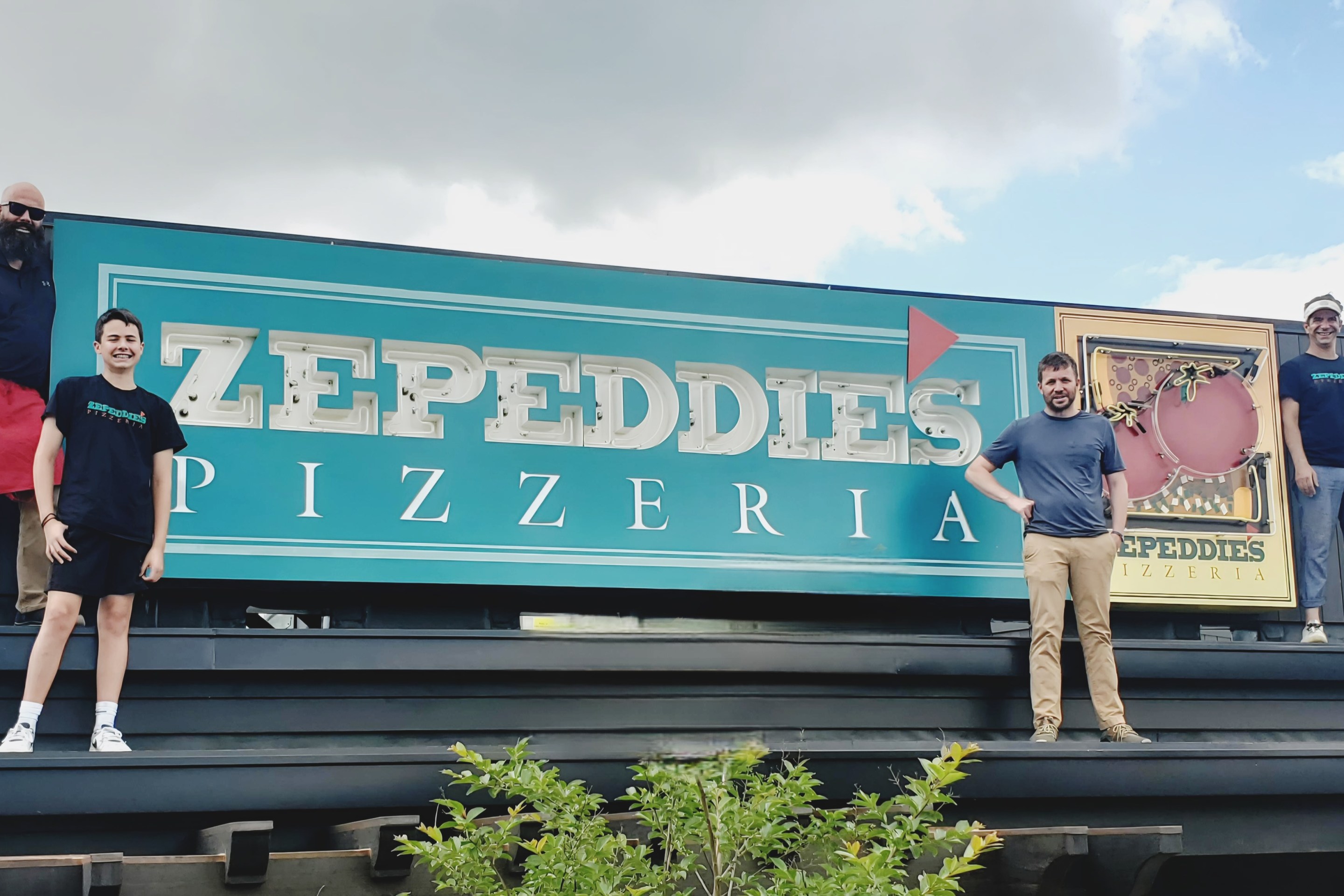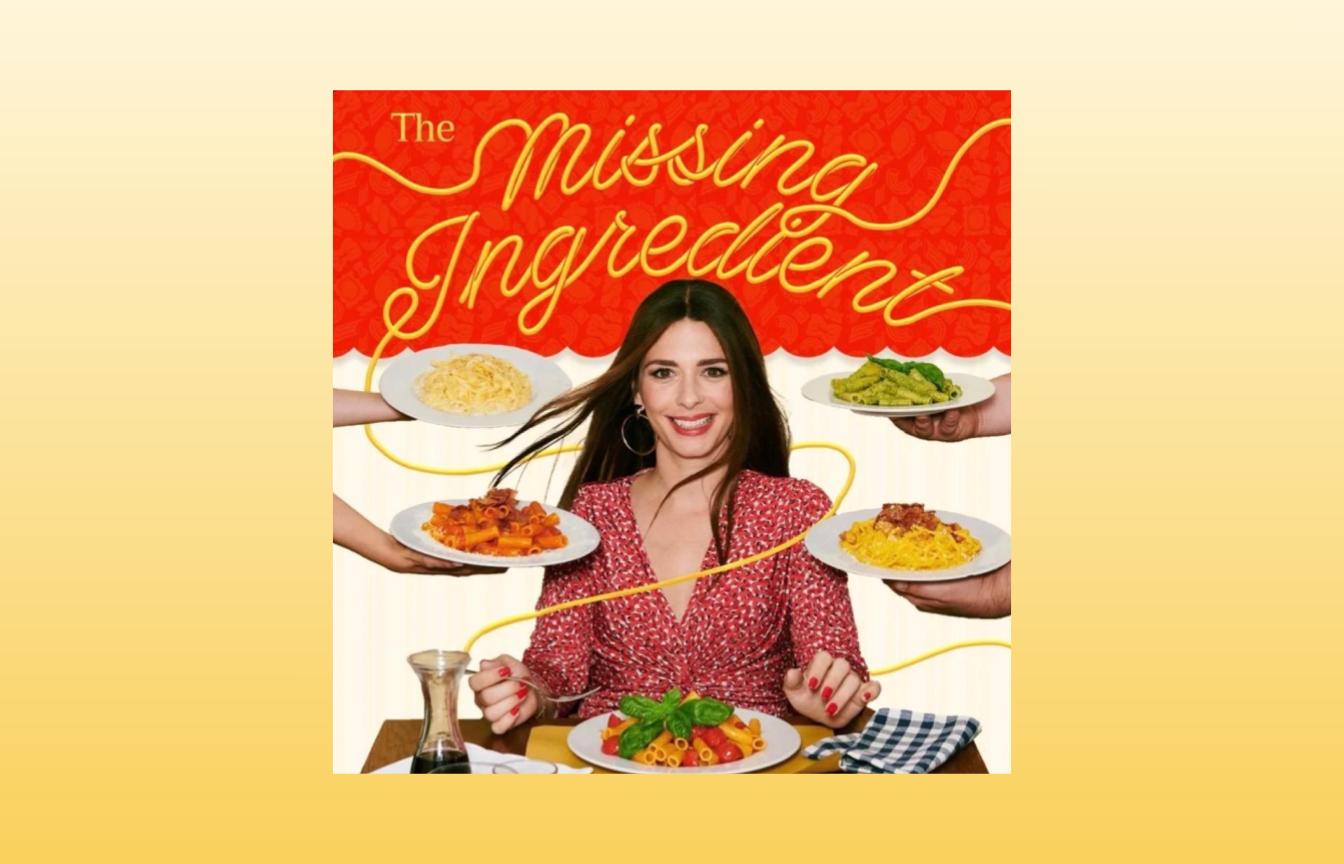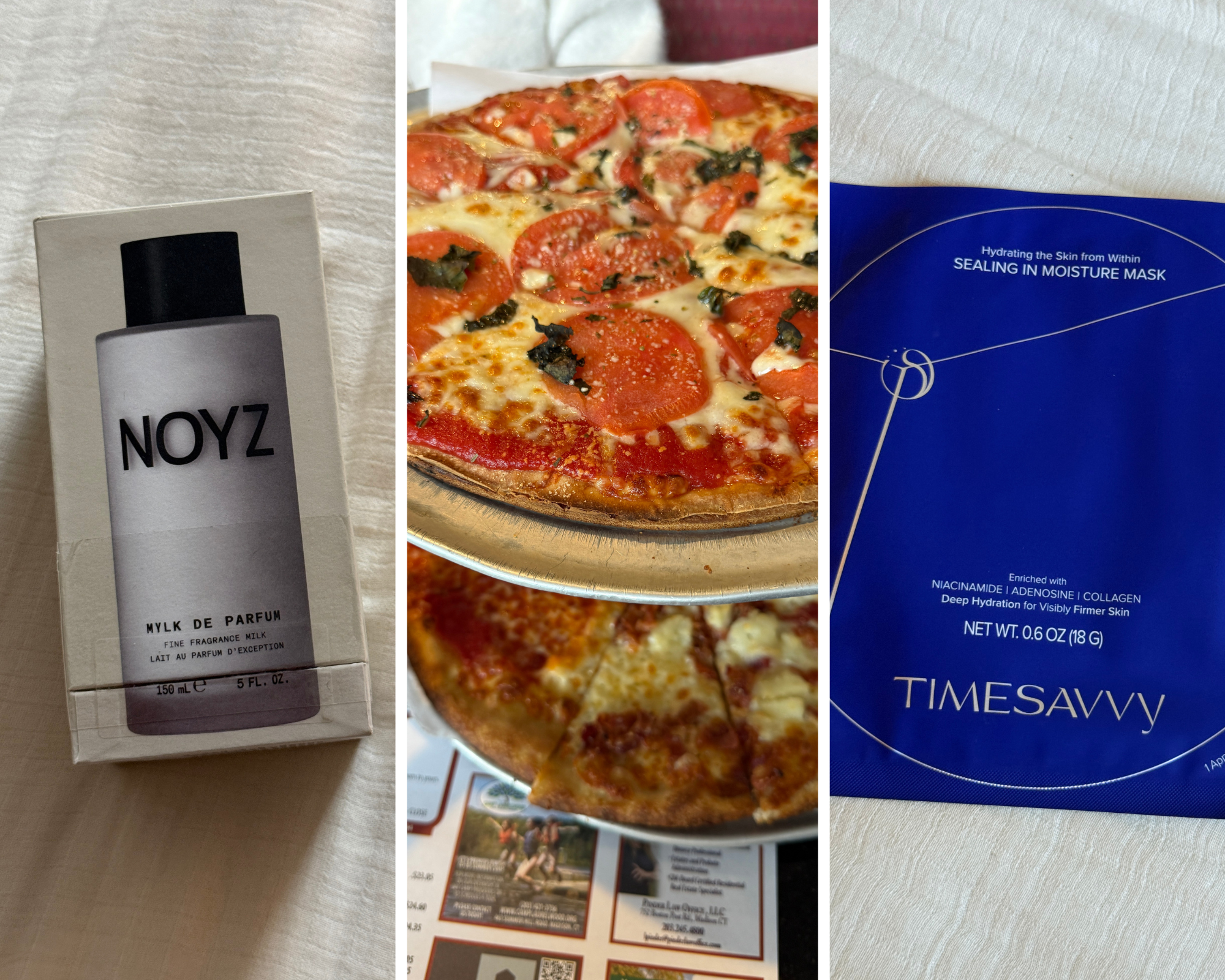Amedeo and Simone Pace, twin brothers born and raised in Milan, became fixtures of New York City’s downtown music scene in the 1990s. They and bandmate Kazu Makino formed Blonde Redhead after meeting through fellow NYC musician John Lurie, and the band has gone on to release nine albums of artful, melodic rock with elements of jazz and punk, with detours into other genres. Makino, who moved to the States from Japan, and Amedeo share vocal duties, sometimes trading verses within a song. Their 10th full-length, Sit Down For Dinner, will be released on the section1 label this week. A worldwide tour begins October 16 in San Francisco.
Amedeo and Simone meet me for lunch at Piccola Cucina Estiatorio, the restaurant from Sicilian chef Philip Guardione, just a few blocks from where Blonde Redhead formed 30 years ago. The charming brothers order chicken Milanese, and discuss the new record, their colorful careers, and of course, how they eat in America in this interview, which has been condensed and edited below.
First, it’s worth noting that the title of the new album, Sit Down For Dinner, isn’t quite as straightforward as it sounds. During our lunch, Amedeo and Simone explain that the inspiration came to Makino while she was reading a passage in Joan Didion’s memoir about her grief following her husband’s death, 2005’s The Year of Magical Thinking. The press release for the album cites Didion: “Life changes fast. Life changes in the instant. You sit down to dinner and life as you know it ends.”
Still, the release goes on to quote Simone, the band’s drummer, as suggesting that the title has a sort of double meaning for them. “Culturally, dinner is important to us. It’s a moment for us to sit down and have time with each other. We grew up that way. I know a lot of people eat and run, eat in front of their TV, or don’t care about it too much—and that’s OK—but we really do.” Well said, Simone.
APPETITO: We feature Italians who live in the U.S. in this series about eating here, because it’s so different from eating in Italy. You both have lived here for decades, so how do you feel about eating in America?
Amedeo: It's getting better, right? We used to have such a hard time touring just because of the food. Especially when we went to England early on, where things were really like bare bones, like fish and chips. And we couldn’t wait to get back to Italy on the tour just so that we could call our mom from the van asking her [to cook all kinds of things for us.]
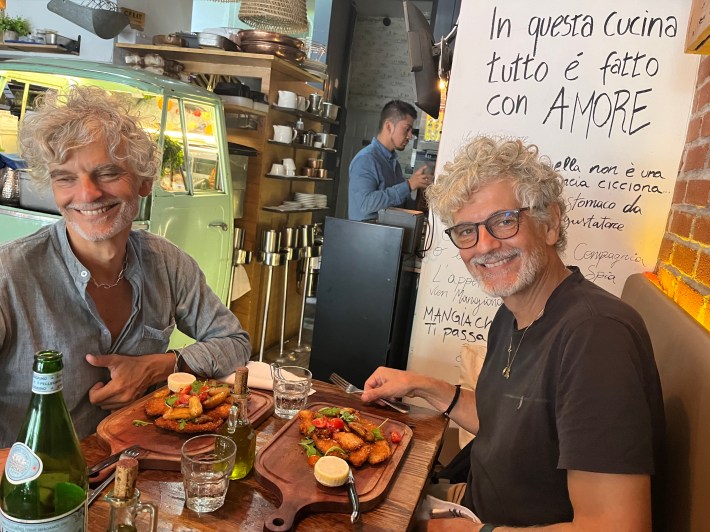
What about in the States?
Amedeo: Here it's good but it's expensive. You go to Europe and it's so easy. You can have a great dinner with really good quality ingredients and wine and everything for practically nothing and it is just part of the way things are in Europe, but here if you want to do it right, you really have to make an effort.
Your family moved to Montreal, and then you both went to study music in Boston. When did that all happen?
Amedeo: We lived in Milan until we were 13, when we moved to Montreal. Then when we were 20, we went to music school in Boston, and that’s when reality kicked in, because Boston is even worse than New York as far as food.
Americans love their big portions, right? Was it hard to adapt to that when you moved to the States?
Simone: When we moved to New York, we were already starting to cook, just because we figured out that we could eat better and afford it, because we were poor. But then when we started touring, we discovered the portion thing, especially the size of steaks in Texas.
Amedeo: It was hard for me when we went to Boston. I used to eat in the cafeteria at school and after every meal, I would get these allergies to the food, and it took a long time to get used to it. I guess we do something different in the way things grow, the soil, in Italy. When we moved to New York, we would go eat Japanese or food that maybe we couldn't make at home. But we never went to these big portion places. Because we were all pretty sensitive with our stomachs. All three of us.
How about restaurants that you like in New York today? Are there any?
Amedeo: Malatesta. In the West Village. But the reason why I like it is because it's a little bit chaotic. It's not necessarily about the food. It's not crazily expensive.
Simone: We also like Estela and Café Altro Paradiso.
Amedeo: Yes, the food is really nice.
Are you well known in Italy? I noticed that you’re only playing one show on your upcoming tour. Is it in Palermo?
Simone: No, Parma.
Why?
Simone: Because Parma pays really well and they want to be exclusive.
Amedeo: It’s a beautiful theater, Teatro Regio di Parma.
You must be some of the only Italian rock musicians who live in the U.S. and have such a long career?
Amedeo: We’re well known. We’re respected.
Simone: We don't get stopped on the street.
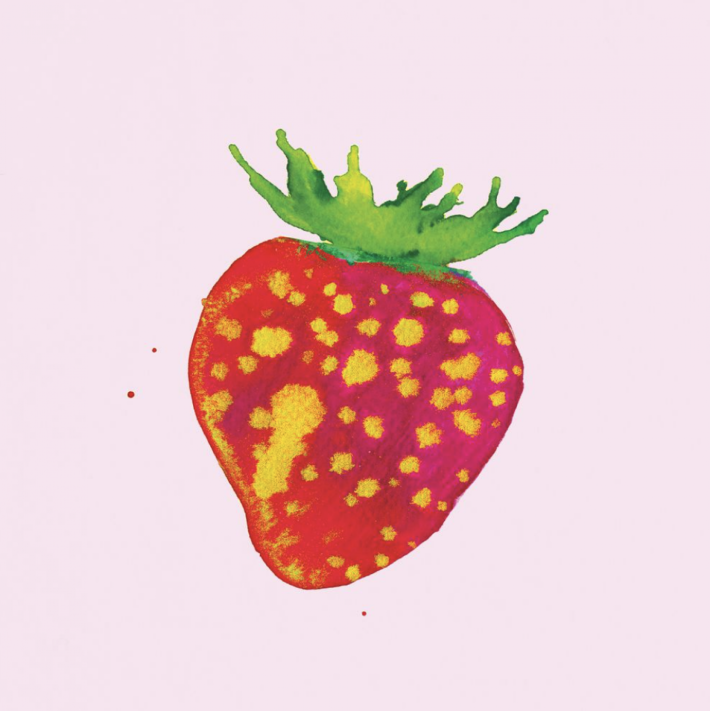
Is it fun to go back and play there?
Amedeo: Yeah, it's always really fun. And the food is good! After soundcheck there's a danger that you overeat before the show. Because we try to eat right after soundcheck, so that we have a little time to digest. But we've had a couple of bad accidents. In Italy, portions can be pretty huge too. Maybe not the portions, but the amount of different things that come out. They always give you bread at the beginning so you start eating bread, which is great. And then you know secondo, antipasti…
Did you learn to cook from anyone in your family?
Simone: My mom, our mom, was really good. And our grandma was incredible. She was from Sicily. Our father’s side of the family is from Sicily, from Palermo. Mom’s side is from close to Pavia, which is a really nice area where they make really good wines too, Oltrepò Pavese. But we would go to my grandma’s house when we were living in Italy every weekend. Once you’ve had all the really good things—
Amedeo: Once you know what things are supposed to taste like, too—I don’t think most people don’t know.
Simone: Here it was hard to find someone who could dress a salad.
Amedeo: In Boston, we would go to the supermarket and order these huge steaks for only like $3. And we didn’t know anything about cuts of meat, quality. And then we saw the butter, the crocks of butter. We were like, Wow! We made mistakes. Then our friend Pietro came to the school too, Pietro, and he was like, What are you guys doing? He would do all the shopping and he would tell us how much we had to give him every week.
Let’s wrap up with a look at your career. I have been following you since your first album, and your music has evolved but also remained unmistakably Blonde Redhead. That’s a hard achievement. How do you feel about it?
Amedeo: Sometimes you look back—it goes so fast. But when you actually see photos of tours and experiences that we've had, it becomes really apparent how much we've done. Musically, too. I mean, when I listen to a lot of our albums, I’m like, Wow, it’s still us, but we were in a very different place; I don't know if we could do that again. Sometimes it's sad but it's also good. It's part of changing. But it's hard to feel really proud. We’ve never had a huge record, you know, which has been kind of our blessing in disguise, to not be exposed to that kind of pressure. And our career has gone up and down so much. So it’s hard to look back at it and say, "Wow, what an amazing achievement!” But at the same time, I feel like when you think about it, it was such a roller coaster. Such an adventure. I'm very proud that we went through that. All three of us. We went through a lot.
